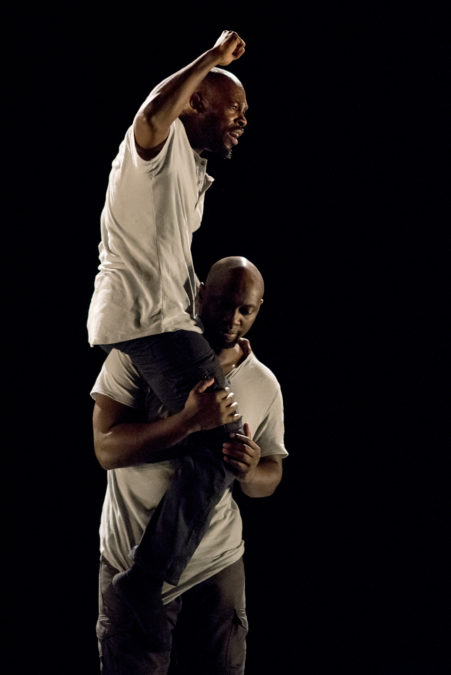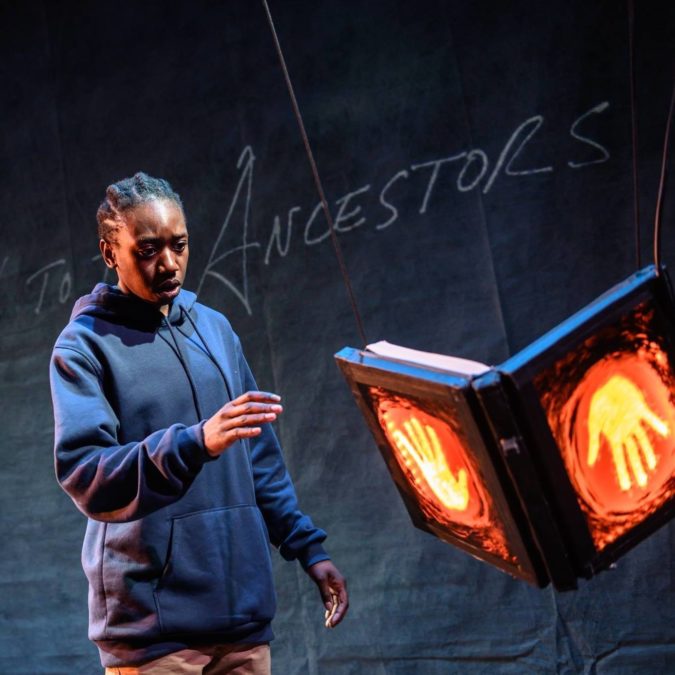Global Perspectives on Black Lives Matter: The work of Joseph Toonga and Makambe K. Simamba
January 11, 2022
Almost a decade after 17-year old Trayvon Martin was killed by George Zimmerman, Black people are still being murdered and incarcerated at an unacceptable rate, and the anti-racism work of BLM is more important than ever. While most of the murders we are familiar with in Canada have happened in the US, BLM has been, from the beginning, a global movement, shedding light on systemic racism all over the world, from South Africa to Finland.
Nigerian-American Ayo Tometi, one of the creators of Black Lives Matter, has always had a global perspective on Black struggles. “When we first started Black Lives Matter, I always knew that this needed to be a global movement and that we needed more people to participate,” she explained to The Guardian in 2020. “The issues of police brutality, extrajudicial killings and anti-Black racism requires everybody to pay attention”.
One place this attention is manifesting is through Black artists, who are illuminating and magnifying their experiences, and expressing society’s discontents through their work. The PuSh Festival this year has two shows that reflect the global themes embodied in the BLM movement; one is that of a Cameroonian man who grew up in London, England, and the other is by a Zambian-born, Caribbean-raised Canadian woman.
“When we first started Black Lives Matter, I always knew that this needed to be a global movement and that we needed more people to participate,”
Ayo Tometi
Born to Manifest is the first work in a planned dance trilogy by Joseph Toonga. It was created as a reaction to the racism Black men face in the U.K., and based on personal experiences. When he was a dance student, a neighbour called the police on Toonga, accusing him and his friends of kidnapping two women, Toonga related in an interview with The Guardian in 2019. Toonga learned that evening that constantly being subject to suspicion and stereotypes is a fact of life for young Black men growing up in the UK.
Toonga moved from Cameroon to East London with his mother when he was an infant. He now creates nationally and internationally, touring his own work and being commissioned by others. “I feel a responsibility as a Black male to empower the younger generation as a role model and example of how dance can provide a positive, successful route”, Toonga said in a 2018 interview. “Mental health and black men’s experiences of it, is little discussed, which is why I am passionate about creating awareness to shift stigmas.”
To create Born to Manifest, Toonga interviewed 10 men, aged 17 to 45, whose answers informed the show. Beyond addressing the stereotypes, Toonga wanted to portray a “support and vulnerability between young black guys”, something men often feel they can’t show, and emotions they can’t always express. “We’re big guys, but I have a heart inside,” says Toonga. “I do feel.”

Toonga’s newest work Born to Protest is the second in the trilogy. According to Just Us Dance Theatre, “This work aims to dismantle presumptions about the Black male and female figures based on intimidation, danger and isolation, revealing instead character traits around fragility, vulnerability and a constant battle to prove oneself”. The trilogy will be completed in 2022 by an as yet unnamed third instalment that will feature an all-female cast, and will explore Black and ethnic minority females. It is already in development with collaborators from around the world, including Brazil, the Netherlands and the UK.
To create her two-Dora Awards-winning production, Our Fathers, Sons, Lovers and Little Brothers, Makambe K. Simamba went on a pilgrimage of sorts around the U.S. and visited places where Black people had died from police violence.
Exploring the first moments of the afterlife of a teenage boy who doesn’t make it home from the store, the work is based on the murder of Trayvon Martin, and goes inside his head to relate to the “17-year-old boy from Florida perspective,” says Simamba. “We as adults look at him as a martyr, but he was a real person. My little brother was the exact same age as Trayvon when he died. I was staring at an empty seat at the dinner table and thought, “that could be my family”.
In order to respect Trayvon’s history and life, she went to Florida to see where Trayvon grew up, and to see the things he saw in his short life. “I recognize the fact that being a Zambian-born, Caribbean-raised Black Canadian, I have a particular experience and my and Trayvon’s experiences are connected in many ways, but there’s also things I don’t know about his surroundings and experience”.

Because of the painful stories we still hear on the news every day, the Black Lives Matter movement is just getting started, and Black artists are a big part of that. Simamba thinks it’s important we remember that every news story is a person. “My intention for this piece is that he’s way more than his death,” she explains. And this is not just a global, or American, issue. “The American neighbourhoods where all these terrible things happen don’t feel energetically different to the Canadian neighbourhoods we think are more of a sanctuary. If you’re living in a Black body, there might not be a safe space.”
Born to Manifest runs January 25-27 at Performance Works with select online presentations. There will be a post-show chat after the January 26 performance.
Our Fathers, Sons, Lovers and Little Brothers runs January 20-22 at the Firehall Arts Centre. There is a post-show chat after the January 21 performance.